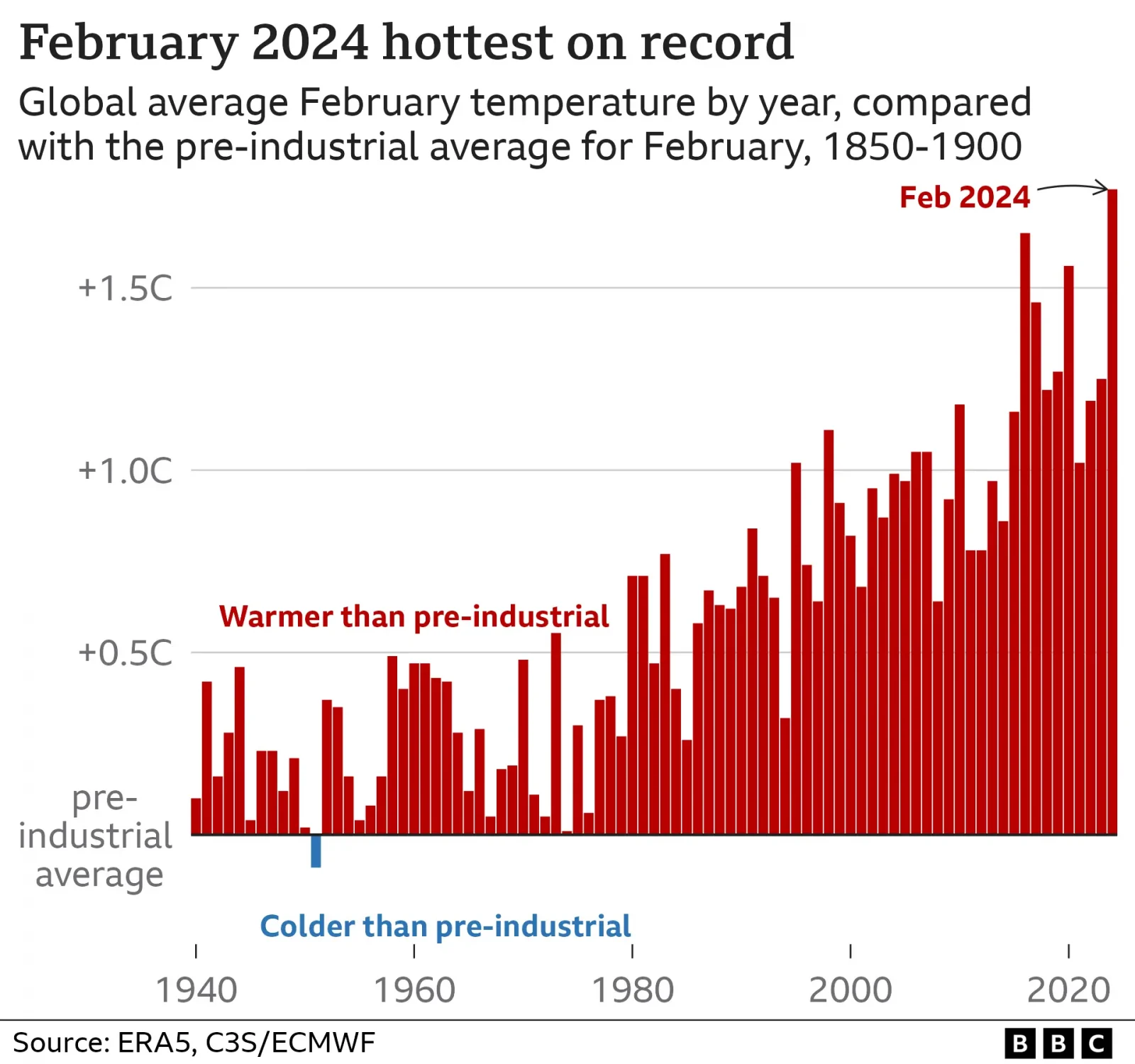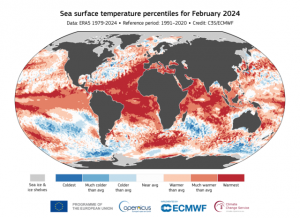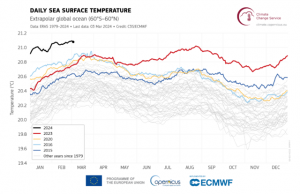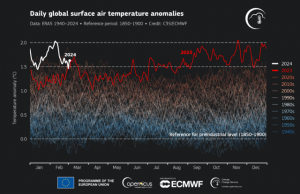
February 2024 Hottest on Global Records, Sets New Temperature Highs

February 2024 marked the hottest February on record globally, with soaring temperatures recorded by Copernicus, the EU’s climate monitoring service. The average global surface air temperature was 13.54 degrees Celsius, surpassing pre-industrial levels by 1.77 degrees Celsius.

This extends a streak of nine consecutive months setting new records for warmth. Record-high temperatures occurred in the first two weeks of February, with daily averages reaching two degrees Celsius above the pre-industrial average. Ocean temperatures also peaked, hitting 21.06 degrees Celsius, the highest ever recorded.

COPERNICUS CLIMATE CHANGE SERVICE/ECMWF
These warming oceans exacerbate climate change by melting sea ice and contributing to rising sea levels. Climate scientists warn of critical thresholds being exceeded, including the 1.5-degree Celsius mark. The recent records coincide with an ongoing El Niño event, further impacting global climate patterns.

C3S/ECMWF
Despite the event’s natural occurrence, human activities intensify its effects. Urgent action to stabilise greenhouse gas concentrations is emphasised to mitigate the impacts of climate change.
Read: After Listing his Power Firm, Tony Elumelu Advices FG to Privatise Electricity Transmission
About The Author
Related Articles
Cotê D’Ivoire: Thousands Rally in Abidjan as Opposition Demands Electoral Reforms Ahead of October Election
Thousands of opposition supporters gathered in Abidjan on Saturday, May 31, to...
ByJoy ChukwuJune 1, 2025Togo Stops Issuing Mining Permits to Reform Outdated Mining Code
Togo has suspended the issuance of new mining permits for prospecting and...
ByJoy ChukwuJune 1, 2025ICYMI: Ghana Shuts Down Washington Embassy Over Visa Fraud Scandal
Ghana has temporarily closed its embassy in Washington, D.C., following the uncovering...
ByJoy ChukwuMay 31, 2025Confederation of Sahel States Moves to Establish Joint Judicial Body
The Confederation of Sahel States (CSS), comprising Mali, Niger, and Burkina Faso,...
ByJoy ChukwuMay 31, 2025











